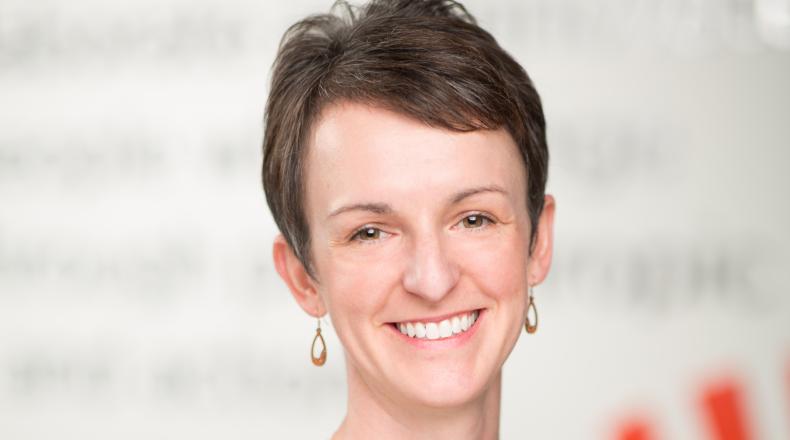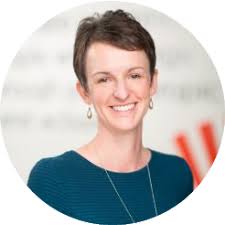Sarah Anderson: There’s No Roadmap for This. It’s OK to Say ‘I Don’t Know.’

I don’t know.
As a consultant, it’s not something I like to say. OK, as a human, it’s not something I like to say. I like to have the answers, and when I don’t have them, I set out to find them. In my work, I ask questions until the soundest strategy emerges. I crunch the numbers until they point the clearest way forward.
I don’t like not knowing. But there’s a lot I don’t know right now. I don’t know whether physical distancing means you’re going to need to cancel your fall fundraising gala, although I do know you should be talking now about what your contingency plan might be. I don’t know if the new donors who give to your emergency fund are going to end up being one-time disaster donors or passionate longtime supporters, but I do know you need an air-tight stewardship plan if you want to cultivate the latter. I don’t know how quickly the stock market will climb back to its historic highs; I just know that you can use this time to connect with your closest donors so you’re at the top of their list if they decide they need to constrict their giving.
But all that feels like trying to fit best practice into a worst-case scenario, and the simple reality is that I, and we, do not know how this unprecedented global challenge will change giving and donor engagement in the near term. We don’t know how it may fundamentally reshape our ideas about philanthropy for good.
So, what do I do when there aren’t clear answers? I embrace the idea of radical acceptance, the concept that we only cause ourselves to suffer unnecessarily when we fight against something that’s beyond our control. That’s not to say I’m complacent. I’m still “commuting” to my make-shift desk in our guest room every morning so I can keep supporting organizations through the toughest time they’ve likely ever faced. But in those conversations, I’m not talking in assertions. I’m sitting with uncertainty and admitting what I don’t know.
The one thing I do know is that partnership is essential right now because none of us are going to suddenly arrive at the answers in isolation. I’m approaching every conversation with curiosity and humility, asking questions of the organizations I work with so I can learn what’s most urgent, what they’re seeing, where they’re succeeding, and where they’re struggling. Then I carry that tenuous bit of knowledge into the next conversation and the next, collecting ideas and suggestions like a child might pick a bouquet of wildflowers—a little haphazard, a little earnest.
You may feel the pressure to have all the answers when talking with your donors, your board, or your boss. You want to say with certainty whether the downturn you’ve seen in giving will turn around when we get back to “normal.” Maybe you want to confirm that the surge of new donors you’ve seen will still be with you this time next year.
How can you lean into partnership to guide you through the uncertainty? Can you involve some key donors to give you feedback on how you’re messaging your mission right now? Can you invite your event sponsors behind the curtain into a strategy session about going virtual? Can you enlist your board members in updating your development plan as you adjust budget goals?
No one has all the answers right now. Where I can, I’m drawing on what I’ve seen before for context—the ways that Sept. 11 bolstered our civic connection in the near term and reshaped our sense of security over the long term; when the Great Recession hit and philanthropy took years to climb back to where it had been; how “rage donors” responded to the 2016 election with an outpouring of support for civil rights and social justice organizations; when a flood devastated my hometown and knit residents together through incredible acts of generosity and courage.
This crisis has elements of all those moments, and yet it is something altogether different. What we are facing right now threatens our health, our social connection, and our economy all at once. Whatever roadmap there is for navigating a triple threat like that, we’re drawing it together right now.
And where it leads? I don’t know, but let’s keep going.


 Sarah Anderson is vice president at Campbell & Company. She helps nonprofits advance their fundraising programs by working with them to develop a clear path forward that takes into account their unique situations as well as proven best practices. Based in Seattle, Sarah helps lead Campbell & Company’s Northwest team; she also led the firm’s strategic planning process and works closely with the leadership team to drive implementation of the plan. She is a member of the Giving USA Editorial Review Board and a volunteer with Social Justice Fund Northwest. She founded the Chatham Arch Community Garden, a neighborhood vegetable garden and orchard in Indianapolis.
Sarah Anderson is vice president at Campbell & Company. She helps nonprofits advance their fundraising programs by working with them to develop a clear path forward that takes into account their unique situations as well as proven best practices. Based in Seattle, Sarah helps lead Campbell & Company’s Northwest team; she also led the firm’s strategic planning process and works closely with the leadership team to drive implementation of the plan. She is a member of the Giving USA Editorial Review Board and a volunteer with Social Justice Fund Northwest. She founded the Chatham Arch Community Garden, a neighborhood vegetable garden and orchard in Indianapolis.